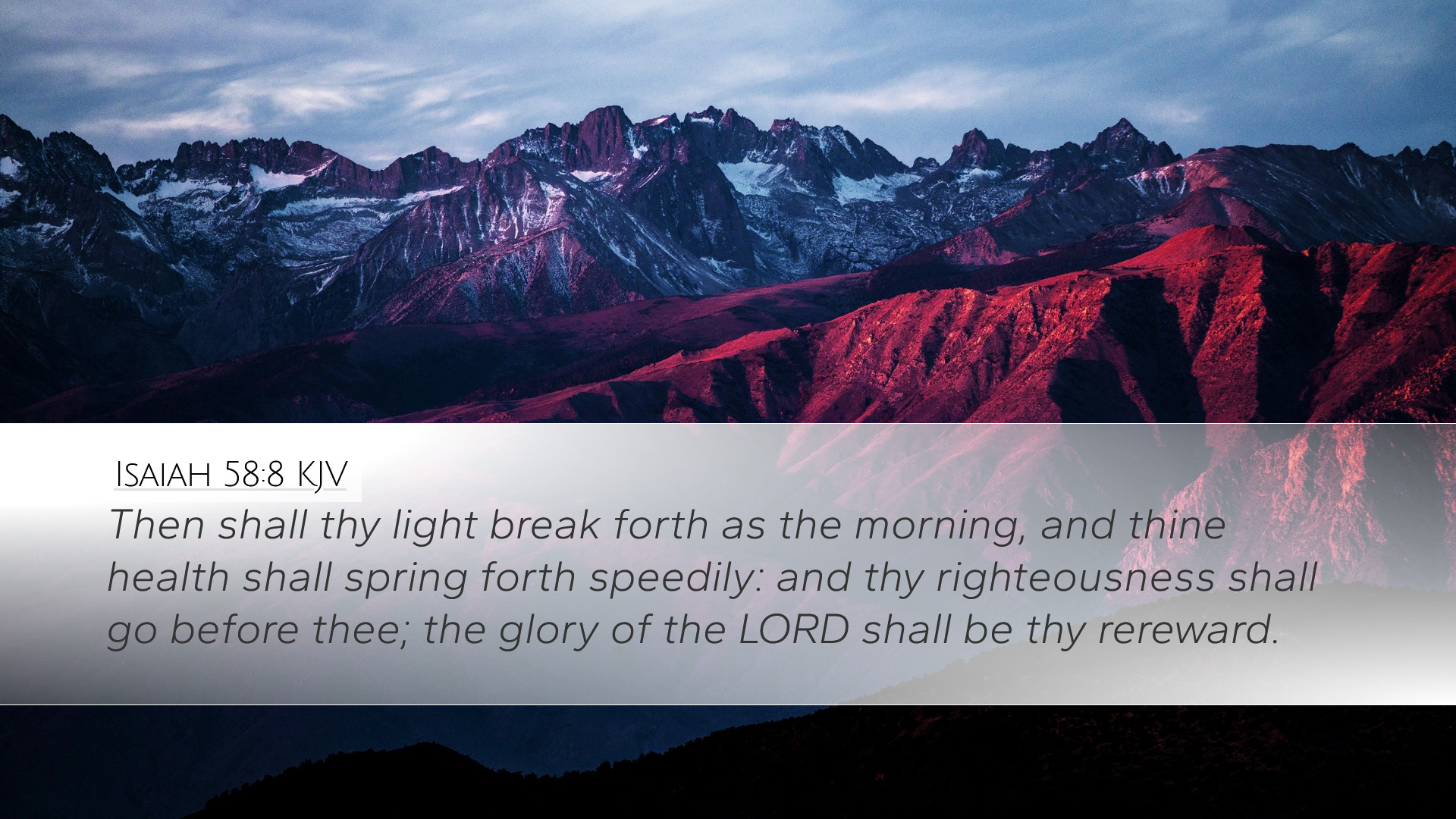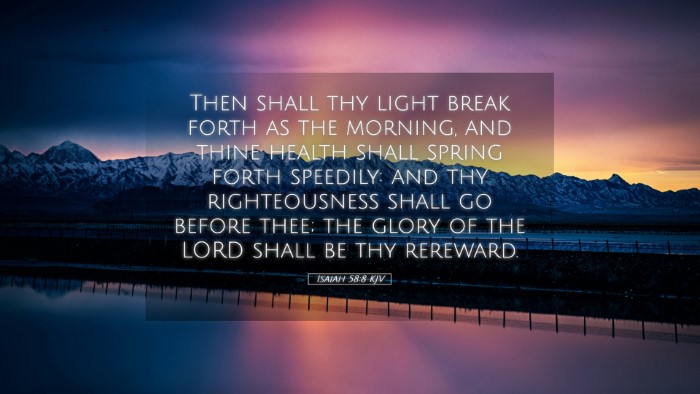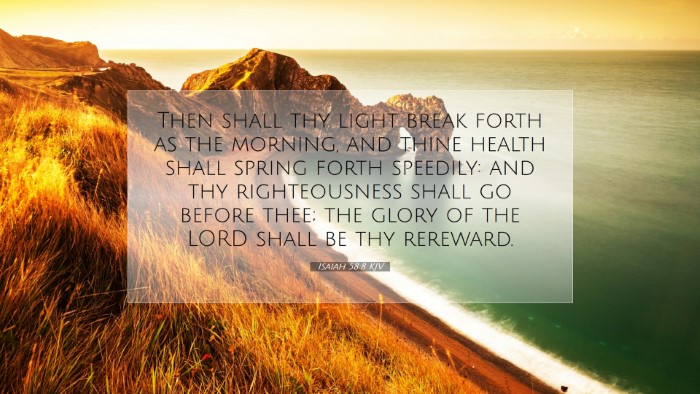Commentary on Isaiah 58:8
Verse: "Then shall your light break forth as the morning, and your healing shall spring forth speedily: and your righteousness shall go before you; the glory of the Lord shall be your rereward."
Introduction
This verse from Isaiah captures a profound promise from God, emphasizing the themes of divine light, healing, righteousness, and glory. It serves as a powerful assurance to God's people that genuine repentance and true worship will lead to divine intervention and restoration. The verse forms part of a broader discourse on the nature of true fasting and worship, challenging the superficial religious practices of the Israelites.
Exegesis and Theological Insights
Isaiah 58:8 can be broken down into key components which warrant close examination:
- Light: The imagery of light symbolizes salvation and divine presence. Henry notes the transformative power of God’s light, suggesting that it represents clarity, hope, and guidance. When believers align their lives with God’s will, their lives become a beacon, illuminating the paths of others.
- Healing: The promise of healing is significant, particularly in a spiritual context. Clarke emphasizes that this healing extends beyond physical ailments, addressing the brokenness caused by sin and disobedience. God promises to restore His people, both individually and collectively.
- Righteousness: Righteousness going before the people signifies that God’s favor will lead them. Barnes points out that this righteousness is not merely the moral integrity of the faithful but reflects the essence of God's own character. When believers walk in righteousness, they exemplify the nature of God and attract His glory.
- The Glory of the Lord: The term “rereward” can be understood as God’s protection and support. This suggests that as believers move forward in faith and obedience, they do not face the journey alone. The glory of the Lord is their rear guard, signifying ongoing divine presence and affirmation of their endeavors.
Historical Context
To fully understand Isaiah 58:8, it is essential to consider the historical backdrop of Isaiah's prophecy. In the time of Isaiah, Israel was characterized by social injustice and a disconnection between religious practices and ethical living. The Israelites engaged in fasting and ritual observance, yet neglected the weightier matters of mercy, justice, and humility. This passage calls Israel to return to genuine worship that aligns with God’s heart for the oppressed.
Practical Applications
For pastors, theologians, and scholars, Isaiah 58:8 invites several applications:
- Genuine Worship: The call to authentic worship transcends mere practice. It involves a transformative relationship with God, leading to active compassion for others, as noted by Henry.
- Social Justice: As the proclamation against empty rituals implies, true faith must manifest in justice and mercy. Barnes highlights the need for believers to engage actively in their communities, embodying the healing power of the Gospel.
- Hope and Restoration: The verse serves as a reminder of the hope that comes from a restored relationship with God. The divine promise of light, healing, and righteousness invites believers into a deeper dependence on God.
Conclusion
Isaiah 58:8 offers profound insights into the nature of God’s interaction with His people. It stresses that true devotion results in flourishing lives marked by divine light, healing, and righteousness. The call for repentance and active faith underscores a transformative journey that not only benefits the individual believer but also resonates through the community at large. As believers engage in this spiritual revival, they become conduits of God’s glory, reflecting His nature and fulfilling His purposes in a world desperate for His presence.


